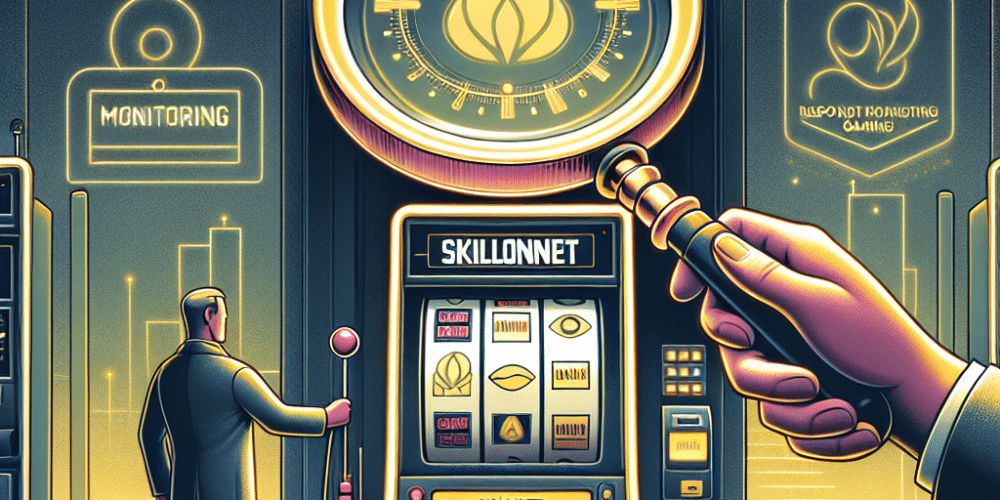Spelinspektionen, the Swedish Gambling Authority, has flagged SkillOnNet for non-compliance after discovering that Prime Casino’s logged-out website lacked essential responsible gaming icons. These icons are crucial for promoting player awareness and control, including tools for self-assessing gambling habits, setting deposit limits, adjusting login durations, and opting for self-exclusion. Swedish regulations mandate that such information be prominently displayed to all users, whether logged in or not.
The absence of these icons in the logged-out version of Prime Casino’s site was deemed a significant oversight by the Swedish Gambling Authority. They pointed out that SkillOnNet had “neglected” its duty to ensure that responsible gaming information was clearly accessible to everyone. This oversight was a departure from the regulatory standards that operators are expected to maintain.
Despite this lapse, the Authority recognized that SkillOnNet complied with most other regulatory requirements and acted swiftly to rectify the situation. The company’s quick response to the notice helped avert further regulatory measures. The regulatory body emphasized the importance of maintaining consistent access to responsible gaming tools across all platforms and interfaces managed by the operator.
Some might suggest that SkillOnNet received a relatively lenient treatment compared to other operators. Earlier in the month, for instance, Spelinspektionen took a harsher stance against CGG Entertainment Ltd., an entity found operating without the necessary license, leading to a complete ban.
Upon notification, SkillOnNet responded by clarifying that the responsible gaming icons were always available to logged-in users. They also revealed that they had already identified the missing icons in the logged-out view before the regulator’s intervention. SkillOnNet reported that the issue was resolved soon after the Swedish Gambling Authority initiated a formal inquiry, attributing the lapse to a technical error rather than intentional negligence.
The Swedish Gambling Authority acknowledged SkillOnNet’s prompt action, noting that the company generally fulfills its duty to furnish players with vital information and quickly corrected the deficiencies once notified. Yet, the incident highlights the ongoing challenge of ensuring comprehensive compliance in the rapidly evolving gambling industry.
In a broader industry context, regulatory bodies worldwide are tightening the screws on gambling operators to protect consumers better. The pressure is mounting for companies to not only comply with existing regulations but also to foresee potential gaps in their systems. This scenario underscores the necessity for operators to remain vigilant and proactive to avoid regulatory pitfalls.
Conversely, some industry experts argue that while strict regulations are necessary for player protection, they can sometimes stifle innovation and burden operators with heavy compliance costs. This balance is critical as the global gambling market continues to expand, with technology playing a pivotal role in shaping user experiences and regulatory demands alike.
In Sweden, the gambling sector is a significant contributor to the economy, generating substantial revenue and employment. However, these benefits must be weighed against the social responsibility of protecting players from gambling-related harm. The Swedish Gambling Authority’s actions reflect a broader commitment to ensuring that operators prioritize player safety above all.
SkillOnNet’s experience serves as a reminder of the industry’s fast-paced nature, where even minor lapses can lead to regulatory scrutiny. The company’s situation also illustrates the importance of having robust systems in place to detect and correct issues before they escalate. For operators, maintaining transparency and demonstrating a commitment to responsible gaming are crucial steps in building trust with both regulators and consumers.
As the gambling industry continues to grow, operators face the dual challenge of innovating their offerings while adhering to stringent regulations. The case of SkillOnNet offers a microcosm of these broader trends, emphasizing that compliance is not just about ticking regulatory boxes but about fostering a culture of responsibility and integrity.
In summary, the incident with SkillOnNet underscores the intricate balance between regulatory compliance and operational agility. As regulators like Spelinspektionen continue to scrutinize the industry closely, operators must remain diligent, ensuring that responsible gaming measures are an integral part of their operational framework. While the regulatory environment may present challenges, it also offers an opportunity for operators to distinguish themselves through exemplary compliance and commitment to consumer protection.

















